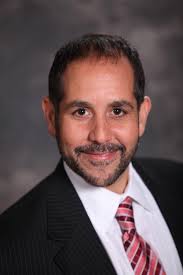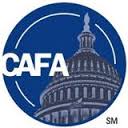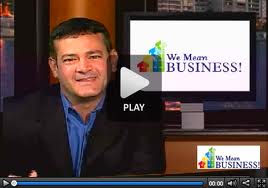Help Wanted — 5 things I’ve learned from interviewing dozens of job applicants
While trying to schedule a telephone interview, one job candidate told me, “Monday will not work at all for me. I start a new job that day.”
Are you kidding me?!
For several weeks, I’ve been tasked with finding someone to fill a brand new position for one of my clients. It has taken this long because we’ve vowed to be incredibly thoughtful about who we decide to hire. My experiences during this process – from developing best practices to meeting new people – can provide valuable lessons for finding that needle in a very large haystack.
Harvard Business School projects that bad hires cost employers three to five times the employees’ first-year salary.
1. Start with the phone
When you post an opening – especially these days – there will be no shortage of applicants. Imagine trying to meet in person with each and every potential candidate. You’d be investing a lot of time – time that you and your team may not have. And you’re flat-out wasting time when candidates fail to show up for interviews. There may not be a need for all that face time. One effective way to sift through the flood of applications and begin the vetting process is to schedule telephone interviews. If an applicant fares well and you have a good feeling, then schedule an in-person meeting. Within about 15 minutes (even via phone) you’ll probably know intuitively whether someone may be a good fit.
2. Don’t call me … on second thought, call me
I asked one candidate to call me at 4:30 pm on a given day. Not only did she call nine minutes past our agreed-upon time, she didn’t even acknowledge her lateness. If this is her approach to a (first-impression) phone call, how seriously is she going to take punctuality as an employee? I ended that interview before it even began and I hope she took the experience as a valuable lesson on professionalism and integrity.
Asking applicants to call you at a mutually agreed-upon time answers two fundamental questions:
- Is he serious about this job opportunity?
- Does she honor her word?
If you make the initial interview call, you may not discover answers to these crucial questions until you’ve already invested too much of your valuable time.
3. Create a specific series of questions
Most employers practice a willy-nilly approach to interviewing. They don’t follow a standardized process or ask predetermined questions – they just wing it. As with any other important organizational process, your interview method should be thoughtful and consistent. Your questions should encourage the applicant to open up and share relevant stories.
What are some of your favorite interview questions? For a carefully crafted 2-page document of interview questions that even includes an objective rating system, e-mail me and I’ll be glad to share it with you.
4. Look for the obvious clues
Can they follow instructions?
Although our listing clearly requested that applicants include a cover letter and resume in the body of their e-mail (“No attachments please”), we still had more than a few folks send their resume and/or cover letter as an attachment. If someone isn’t willing to take the time to read through a brief job listing and follow a simple request, what might they overlook as an employee of your company?
Can they hold down a job?
You may hear people boasting about their “10 years of experience,” when in fact they have two years of experience … 5 times. When you see a resume full of one- and two-year tenures, that should send up a big red flag. I recommend at least addressing this with the individual if you decide to proceed with an interview.
Did they proofread their own resume?
Finding spelling/grammatical errors and/or inconsistencies in proper tense throughout a cover letter and/or resume immediately turns me off. These documents represent the individual to prospective employers; they should be impeccable.
Use social media to check ‘em out:
A picture is worth a thousand words, and these days a video could be priceless when it comes to preventing a bad hire. Google your applicants to see what shows up. Facebook pages, Twitter streams and YouTube posts can tell you a lot about someone’s personality and level of professionalism. I was impressed with one applicant’s resume and especially her Internet radio talk show – until I listened in and heard her disgruntled views on what’s wrong with the world.
5. You’re interviewing potential clients and referral sources
What impression are you making on applicants? How quickly are you responding to them? Are you “courting,” or does it feel more like “interrogating?” Do you get back to the applicants who don’t make the cut? These questions are important, because each applicant could become a future client and/or source of referrals. Those with a favorable impression are more likely to recommend, or even do business with you and your company down the road.



















Great, Steve. Two great questions I use are:
1. What is it about your background that makes you believe you’d be suited for this position?
2. What would you do in this situation? [Describe a situation in which they might find themselves working for you] e.g., for an assistant, “Your employer has a conference call at 2 and at 1:55 you realize he won’t be able to make it on time.”]
Those are great, Jim. I may have to borrow them. Thanks for sharing.
Great post, Steve! And I like Jim’s points, too. One question I love to ask in interviews is:
“What should I ask you that I don’t know to ask you that will highlight why you’re the best fit for this role?”
Another great one, Suzi! I love it.
A little unrelated, but just to add some humor to the being-late-for-interviews situation…These were actual employees though:
A CareerBuilder.com online survey conducted in April and May 2010 with more than 500 business leaders in the United Kingdom, France, Germany, Italy and Sweden unearthed the following odd reasons for being late:
Employee had difficulty adjusting to the climate change from winter to summer.
Employee was concerned about the impact of an impending comet.
Employee’s cat was stuck in the flap of the pet door.
Employee was delayed by volcanic ash.
Employee’s house was on fire.
Employee said a bank robbery occurred in front of his house.
Employee said police were taking fingerprints from a stolen car that blocked the employee’s car.
Employee said a horse jumped over a hedge and onto the top of her car.
Employee said someone moved his teeth.
And, I will add my favorite one, which I learned this year: skip work because Mercury is in retrograde! 🙂
Have a great day!
Thanks for the comic relief, Maria. 😉
Hey Steve, my favorite tip is that the candidate must smile and I mean that in two ways. If I’m on the phone with them, I have to hear the smile in their voice. If I then ask them to come in for an in-person interview, they have to smile. If they don’t smile, the interview is over!
I feel strongly about this because I believe a smile reflects the candidate’s attitude. If they are reasonably intelligent, you can teach them almost anything. If they have a bad attitude (reflected by the ease at which they smile), this will never change and I simply can’t work with them and don’t want them interacting with anyone that may be in need of our services. Sounds harsh but it’s worked for me.
I feel you’ve shared an incredibly valid point, Lisa. Thinking back on the “attitudes” I experienced throughout this process…
A person can interview well and look great on paper but when your gut is offering up a warning, you should listen. The smile is a tangible that’s even more reliable than the gut.
Just read this great interviewing tip from Cameron Herold:
“The best way to bring out their true nature is to ask them this magical 5-word question:
“So what’s your favorite movie?”
Wait! What?
How does it even matter?
Should I not hire someone who says their favorite movie is GIGLI?
No.
I’m not suggesting you hire people based on their taste. NO.
Since most people come to interviews prepared for generic questions, they get shocked when you throw this one.
No interviewer has ever asked them such a question before.
You’ve interrupted their pattern.
They are uncomfortable.
You have pulled them off-script.
Whatever happens from now is their true self talking.
Take notes – the interview has just begun.
But…
Do not ask this question right off the bat.
There won’t be much of a pattern interrupt happening at this point.
Ask 2-3 generic questions they have most likely prepared for…they’d start feeling like they are killing it.
And then drop this bomb question.
Take notes.
How did they react when you asked this question?
Did they get defensive?
Did they stammer & circle around?
Or did they stay calm & explain the situation?
You want composed & level-headed employees that have the capability to deal with uncomfortable situations.
They should be able to function well even if their pattern is interrupted.”